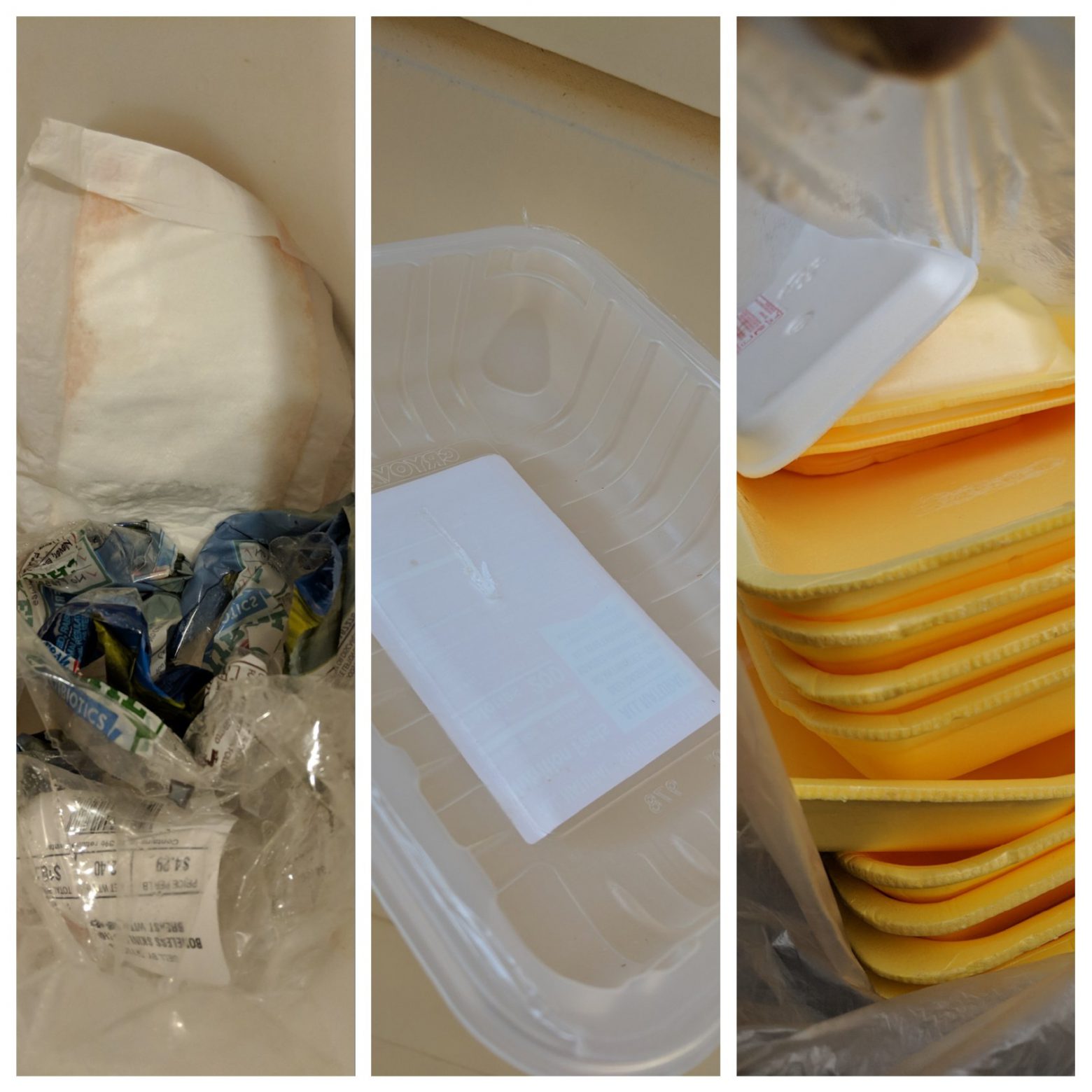There is research showing that not eating meat can be “greener” for the Earth.
I respect that argument but I am not addressing that here.
If you need to and/or want to eat meat as a source of protein, I want to make sure you are doing what you can to effectively dispose of the waste products.
Unfortunately, Texas does not allow us to bring our own containers to most meat counters, at least not the big grocery chains like Whole Foods and Central Market. Apparently this is a health code issue. See if your local grocer or meat counter can/will. The butcher could use paper sheets to drop meat in your container, not touching your container at all. The butcher weighs meat on the scale on the paper sheet anyway. That sheet could then be composted.
So, what do you do with all the stuff that comes with meat?

The film/wrapper and meat juice pad go in the trash.

The plastic trays can be recycled. Rinse them off and put then in the recycling cart.

Meat foam trays can be recycled at the Austin Recycle & Reuse Drop-off Center and the New Braunfels’ City Recycle Center. Round Rock and San Marcos, Texas won’t take these.
Take off the film and meat juice pad and put those in the trash. Rinse the foam as soon as possible to get it as clean as you can. The densifier (foam melter) does not clean the foam, so it needs to be clean before it gets dropped off.

I collect the meat trays (and other Styrofoam) in a clear garbage bag in my garage. Once it’s full I take it to the Drop-off Center. As long as these are rinsed off, there are no bugs and no smell.
Fat, tendons, bones, and extra meat, both cooked or raw, can all be composted in the City of Austin curbside composting program. Most farmers’ markets do not accept protein items so check first. Community gardens may or may not as well, check first.
